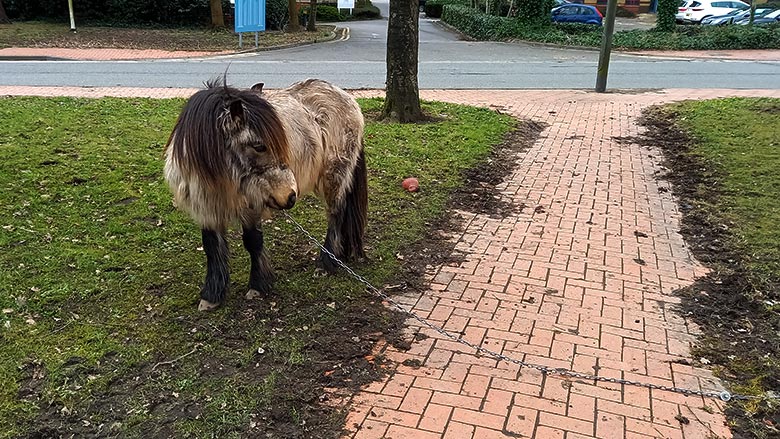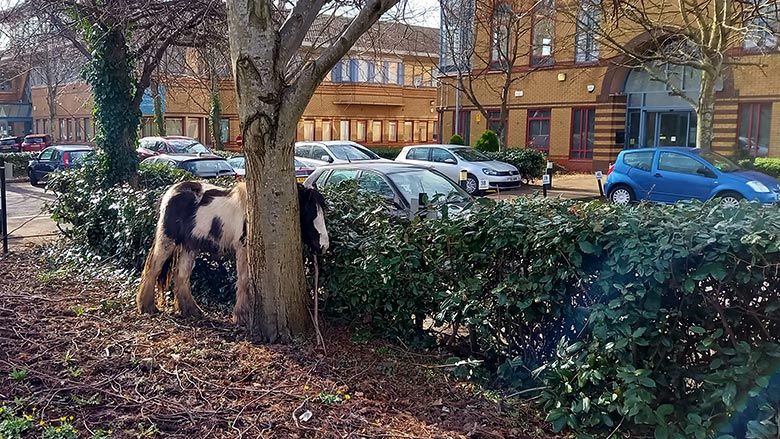Horses tied near the roadside are common in some areas of Cardiff, but this management practice is seen as cruel

Horse tethering should become not only illegal but also an act of cruelty according to campaigners.
The petition directed to the Welsh Parliament, after three days has reached more than 2,000 signatures.
“People want it to become illegal because is not nice for any animal to be tethered and also because a lot of people perceive the welfare level to be at a lower standard they would give to horses,” says an activist for animal welfare in Cardiff.
The Welsh Government’s code of practice for equine welfare says that the act of tethering is not illegal in Wales, but only that is not a suitable method of long-term management of a horse.
For this reason, a lot of horses cannot be rescued by charities without the permission of the owner, police or local authority.
The Royal Society for the Prevention of Cruelty to Animals (RSPCA) highly disapproves tethering as a viable way to keep a horse because it can compromise its well-being.

The sight of colts tied up on patches of land along the road is not uncommon in Cardiff. A few miles from the city center, many horses can be spotted on the roadside.
“There is no shelter for them in the rain or in the wind, few years ago we had a really cold winter and some of the horses died from hypothermia or because of the cold,” says activist.
According to the RSPCA, tethering a horse can have many negative consequences on the animal health conditions.
Attaching a rope or chain to a horse’s neck can be potentially dangerous to its physical safety. Horses tied to trees can risk getting entangled and consequently bruised or, in the worst case, suffocating.
If the animal is not moved regularly, he will have less access to fresh grazing which won’t allow him to maintain a healthy diet. Or worse, continuing to graze in the same place can lead to worm burden that can be fatal.

“People see that as abuse, just leaving horses, may not be physical but is in a sense abuse. Education is key to people,” says activist.
In 2018 the RSPCA received over 5,000 complaints about tethered horses which is one of the most common issues with equine welfare.
Signatures will be collected until May 14 and if the petition will receive more than 10,000 signatures will be considered for a debate in the Welsh Parliament.
